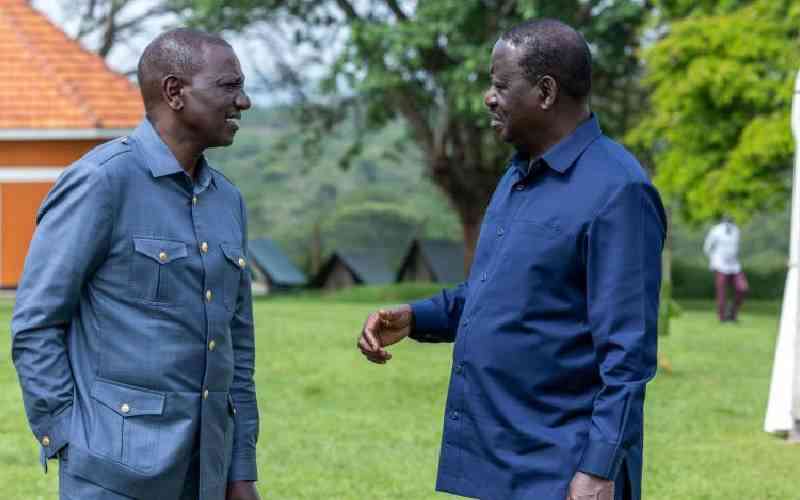×
The Standard e-Paper
Join Thousands Daily

Azimio leader Raila Odinga Wednesday lived up to his name of enigma after he managed to squeeze four Cabinet slots from President William Ruto, a man who defeated him two years ago.
Raila firmly placed his foot in the Kenya Kwanza administration, sealing his fourth back-to-back entry into government after losing in presidential elections in 1997, 2007, 2013, 2017, and 2024.